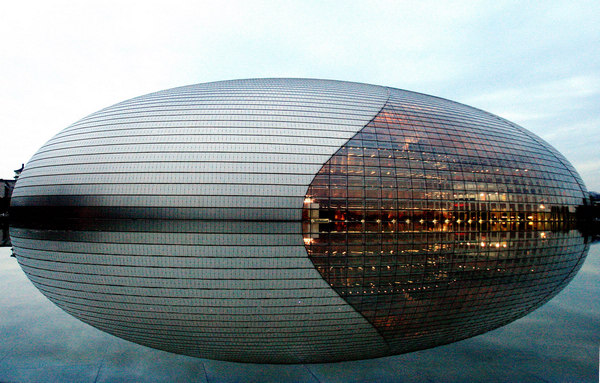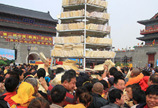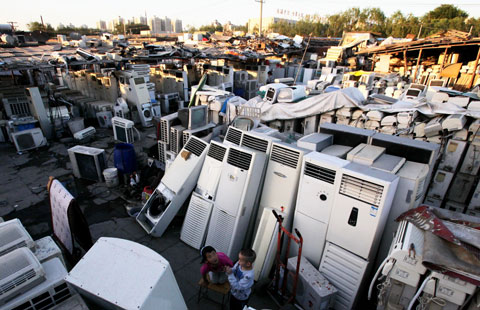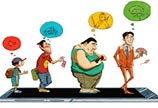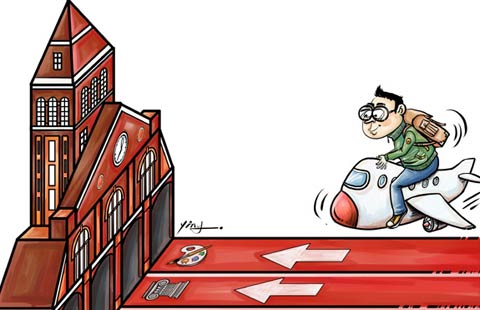Cheaper admission just the ticket for landmark venue
By Raymond Zhou and Zhang Yuchen (China Daily) Updated: 2011-11-18 07:54
Television personality Bai Yansong ascended the stage recently at the National Center for the Performing Arts and appealed for lower ticket prices. He didn't realize at the time that his audience had benefited from such a plan.
Ticket prices for that day's one-hour program, mostly Mozart, were just 40 yuan ($6.30), or 10 yuan for members who had paid annual fees. That means a visitor could tour this new landmark plus indulge in the pleasures of the performing arts for about half the cost of a regular movie ticket.
From its opening in December 2007 through September, the center hosted 4,000 such events to bring various performing arts to the masses. Some 1.5 million people attended them without breaking their bank account.
|
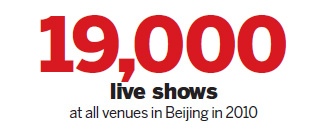 |
But tickets for most live performances in Beijing and other Chinese cities cost considerably more. They defy basic economic theory, which dictates that price is determined by supply and demand. In China's live show market, other forces are at work.
Many tickets are priced with a string of eights, a lucky number in Chinese superstition - 880, 1,880 and so on. A record was set early this year when a box seat for a Shaanxi opera went for 8,000 yuan.
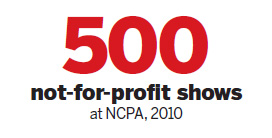 |
Wang would not divulge the ratio of institutional buyers to individuals.
Different motivation
According to Lin Nan, an industry analyst, the prevalence of high-priced tickets does not correlate to high demand and low supply. It is the result of government entities investing large sums into projects that "clog up venues and schedules but do not care for financial returns".
For a commercial performance, a theater does not intend to lose money. However, the producer with financial backing may not care. Whatever category a performance falls into, the tickets in the high price range are either given away or sold to institutional buyers.
The economic model is skewed, a state of affairs that NCPA is struggling to resolve.
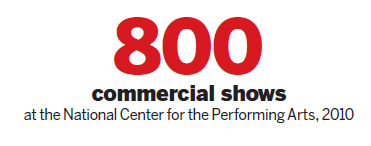 |
Wang said there is no way the center could recoup its cost in certain projects, for example, flying in the Simon Rattle-led Berlin Philharmonic. Online rumors put per-seat cost at 3,000 yuan, partly due to special transportation and accommodation demands from the artists. Wang said only that the cost was "not that high".
But overall, he said, the center factors cost, audience acceptance and supply-and-demand dynamics into its pricing.
On its website, the Berlin Philharmonic concerts Nov 10 and 11 were listed at 380, 580, 780, 1,080, 1,380 and 1,680 yuan, plus an unspecified VIP rate. However, Wang explained that no matter how you price a performance, people who buy their own tickets will flock to tickets in the medium-to-low price range.
- Seven villagers murdered in N China
- China steps up tobacco control efforts
- Five jailed for separatism in Xinjiang
- Letter asks for leniency in poisoning case
- Antibiotics in surface water pose 'indirect health risk'
- Tianjin airport opens up transit link to Beijing
- High levels of antibiotics in China's major rivers
- China to dig tunnel for Asian rail system
- Bering strait line to US possible, experts say
- China: Stop oil rig harassment
